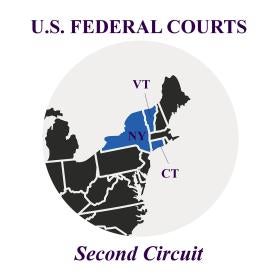After the Department of Education published the final Title IX regulations in May 2020, an open question remained as to how education institutions should treat pending Title IX investigations based on complaints filed before the new regulations became effective. In October 2020, a Federal District Court for the Northern District of New York emphatically answered that question, issuing a first of its kind preliminary injunction against Rensselaer Polytechnic Institute (RPI), enjoining RPI from using procedures that do not comply with the new Title IX regulations.
Background: Doe v. Rensselaer Polytechnic Institute
The case at issue, Doe v. Rensselaer Polytechnic Institute, stems from a January 23, 2020, sexual encounter between two RPI students: the Plaintiff, identified as John Doe, and a female student identified as Jane Roe. Both students admitted the night began with consensual sex; however, Doe’s and Roe’s narratives about what happened after that diverge, with both students accusing the other of unwanted sexual intercourse and touching. On January 31, Roe filed a Title IX complaint against Doe. Six months later, Doe cross-filed a Title IX complaint against Roe.
On August 4, RPI concluded by a preponderance of the evidence that it was more likely than not that Doe violated RPI’s 2018 Student Sexual Misconduct Policy. Doe requested a hearing to challenge this finding, as was his right. The same day, RPI dismissed Doe’s Title IX complaint against Roe, finding he had failed to establish his allegations by the same standard. Doe appealed this finding, but his appeal was dismissed.
While RPI was investigating Doe’s and Roe’s Title IX complaints, the Department of Education published new Title IX regulations; these became effective August 14. According to both the regulations’ preamble and a blog post published by the Department of Education’s Office of Civil Rights (OCR), the Department would not enforce the regulations retroactively. Instead, per the post, a school would be found noncompliant with Title IX only if it did not use the new rules to investigate and adjudicate instances of sexual harassment “that allegedly occur on or after August 14, 2020.”
In acknowledgement of the new Title IX regulations, RPI published a revised Student Sexual Misconduct Policy on August 14. Doe requested that the remainder of his investigation — including the impending hearing — be conducted under the new 2020 policy. Citing OCR’s statements that the regulations are not retroactive and only are required to be used in instances of sexual harassment that allegedly occurred on or after August 14, RPI denied Doe’s request: Doe’s hearing would follow the procedures in RPI’s 2018 policy.
The Decision: Court Enjoins RPI from using 2018 Title IX Policy
On September 28, two days before his scheduled hearing, Doe filed a complaint alleging RPI's handling of his cross-complaint against Roe and its refusal to use the 2020 policy amounted to sex discrimination in violation of Title IX. Doe also moved for a temporary restraining order (TRO) and a preliminary injunction to prevent RPI from proceeding with the disciplinary hearing against him using the 2018 policy. The Court granted Doe’s motion for a TRO and converted the TRO into a more permanent preliminary injunction.
Despite RPI’s reliance on it, the Court found the regulations’ retroactivity largely irrelevant. The Court noted that RPI already had designed and implemented a new Title IX policy that complied with the new regulations and, thus, RPI easily could have implemented the 2020 policy for Doe’s hearing. Moreover, the Court questioned the “inevitable administrative headaches” of having multiple Title IX procedures.
Further casting doubt on RPI’s articulated reasons for using the 2018 policy, the Court bluntly criticized RPI for using procedures that provided fewer due process protections: “[RPI] decided that it would be best to maintain two parallel procedures solely to ensure that at least some respondents would not have access to new rules designed to provide due process protections such as the right to cross-examination that have long been considered essential in other contexts.”
The Takeaway: Courts are not Bound by OCR
Courts are not bound to follow OCR blog posts or the preamble to the Title IX regulations. And while OCR won’t penalize a school for using previous Title IX procedures to investigate alleged misconduct pre-dating August 14, a court might. While other courts may decide this issue differently, institutions subject to Title IX should carefully consider whether it is practical (and defensible) to maintain two separate policies for conduct that occurred before and after August 14, 2020.





 />i
/>i

